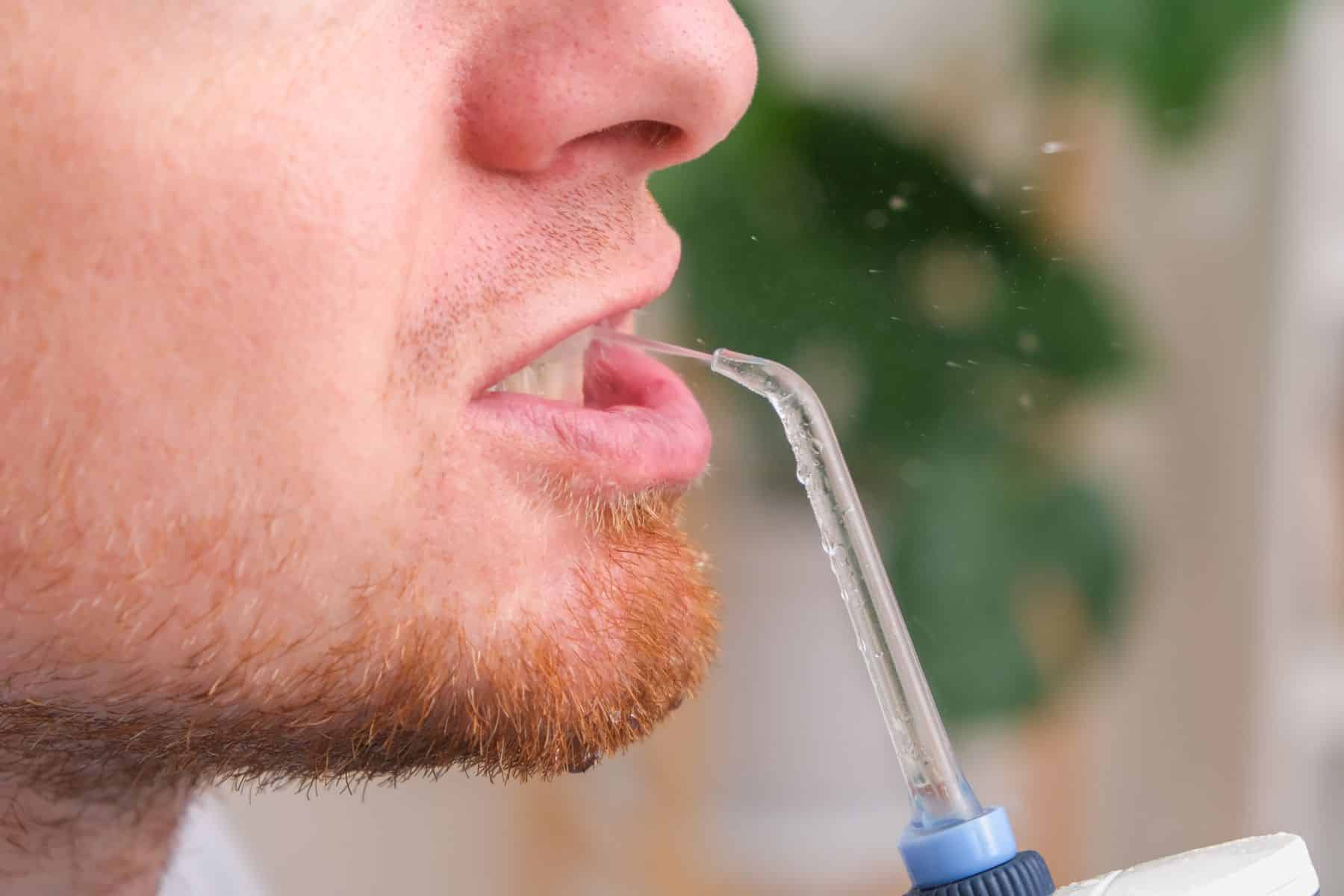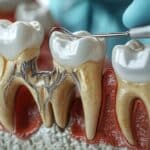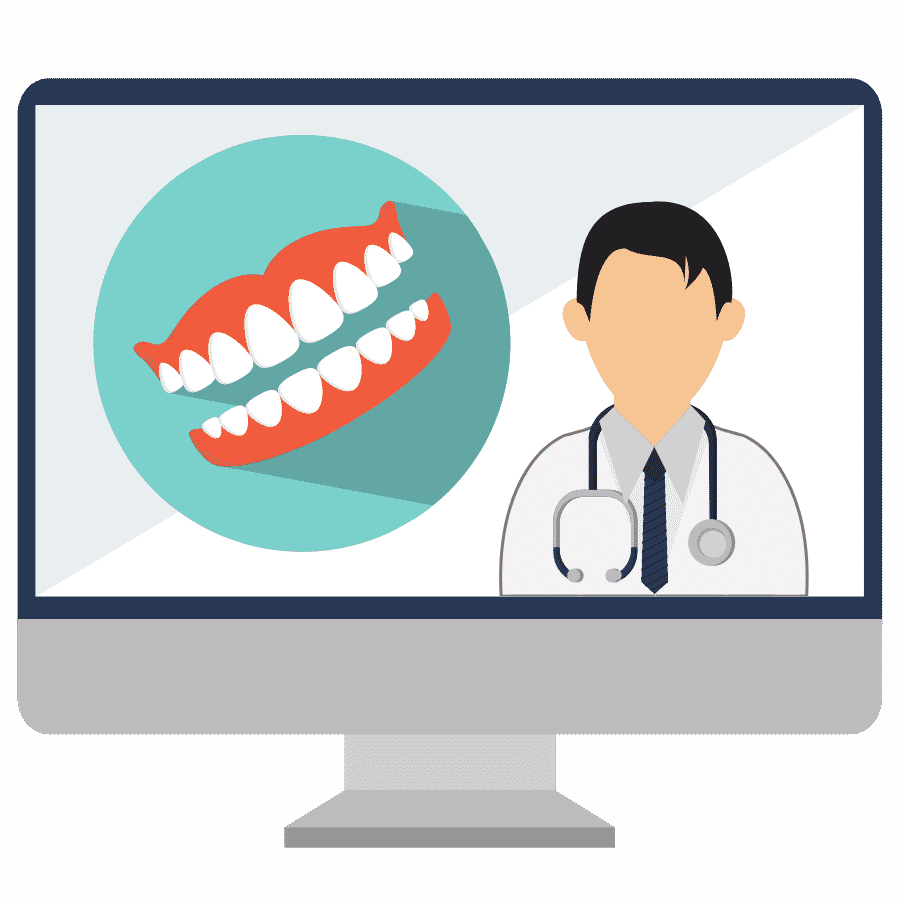The Importance of Professional Cleanings
No matter how diligent you are in maintaining your dental implant cleaning regimen, you’ll still need to have professional cleanings from time to time. If you’re like most patients, you’ll need to seek professional cleaning every six months. Some patients–such as those who smoke–may require more frequent cleanings.
Maintaining the regular cleaning schedule recommended by your oral hygienist will ensure that any bacteria or plaque buildup is removed before it can cause damage or infection. Your hygienist will also check the condition of your gums and tissues surrounding your implants and alert you if any problems are developing.
At New Teeth Now, your professional cleaning will include removing your new teeth and soaking them in a special solution to remove stains and tartar from the replacement teeth.
Daily Living with Practically Carefree Full Mouth Dental Implants
One of the top reasons so many people choose dental implants instead of another type of tooth replacement is the many years of nearly carefree talking and chewing they’ll enjoy after a brief period of healing from their implant procedure. When it comes to routine care and cleaning, dental implants offer the ultimate level of convenience among restorative dental options.
What’s more, high-quality dental implants beautifully resemble natural teeth, creating an aesthetic that’s far superior to that of typical dentures. Full mouth dental implants also perform more like natural teeth. This translates into the freedom to laugh and smile spontaneously at any time of day, without having to worry whether dentures are properly in place.
If you’re considering full-mouth or single dental implants, or perhaps an implant-supported bridge, you’re smart to evaluate the many benefits that these appliances deliver. Imagine:
- Following a long-term, no-hassle oral maintenance routine that’s similar to the one recommended for natural teeth, including twice-yearly professional cleanings
- Avoiding the chore of removing your dentures daily and the potential embarrassment of a friend or family member seeing them soaking on your nightstand
- Enjoying the ability to eat steak, nuts, cookies and virtually all of the foods you ate when your natural teeth were healthy
- Having no worries that your artificial teeth will slip or permanently disrupt your speech when you’re chatting with colleagues or friends, the way dentures often do
Cleaning and Care: What to Expect with Dental Implants
When you opt for dental implants, your oral surgeon will provide you with specific care and cleaning instructions for the hours and days immediately following your procedure. You will also need to avoid certain foods and follow a special oral hygiene routine for a few weeks after your dental implants are in place. This will give your body time to heal and adjust to your new prosthesis while minimizing the risk of infection.
You can read the New Teeth Now “Dental Implant Care Guide” to learn more about post-operative strategies for the care and cleaning of your new implants. The information below relates to the long-term care and cleaning of your dental implants to maximize their longevity and the benefits you’ll enjoy on a day-to-day basis.
The Right Way to Clean Your New Teeth at Home
Just as with your natural teeth, you’ll brush your new teeth at least twice a day – usually after breakfast and before you go to bed. We recommend soft-bristle brushes to gently clean natural teeth, and this recommendation holds true for your new teeth. In fact, it’s even more important because, even though your new teeth are tough and sturdy, they can be scratched by abrasive bristles and over-zealous brushing.
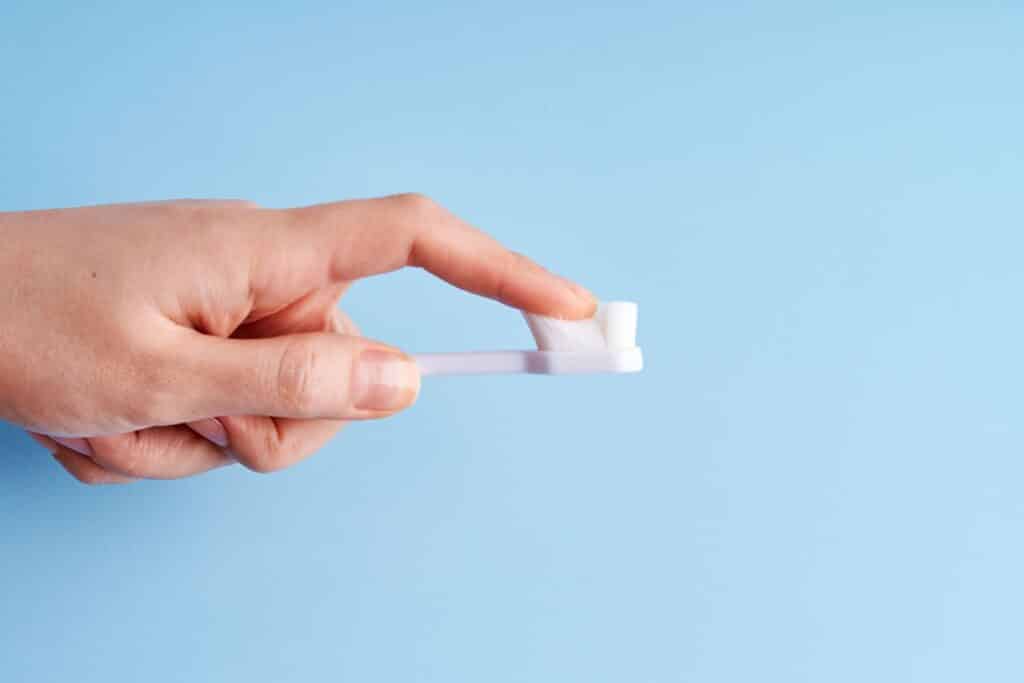
Are you accustomed to using an electric oscillating, rotating or sonic toothbrush? Good for you, as this tool has proven effective at plaque removal and may be superior to traditional toothbrushes when it comes to stimulating blood circulation that helps keep gums healthy.
However, for the first few weeks after your dental implant procedure, you’ll want to use a manual toothbrush until your dental professional advises you that the implant site has healed and it’s safe to use an electric toothbrush.
Beyond the Toothbrush: More Tools to Consider
Brushing your new teeth twice a day is only step one in the ideal oral hygiene regimen. Two additional tools will round out your dental implant care kit: a water flossing machine and an interdental or proximal brush.
A water flosser is the ideal way to wash away small food particles that can collect in the space between the bridge and the gums of your dental implants. Water flossing has also been proven highly effective at removing plaque between crowns. In fact, many dental professionals recommend flossing with water daily to clean natural teeth.
However, using a water flossing machine can be messy and take some getting used to. An interdental brush is another valuable tool that’s specially designed to clean beneath the bridge, and it may better suit your teeth cleaning needs when you’re away from home. This small brush is available in different sizes. Your dental care provider can recommend the best one for you.
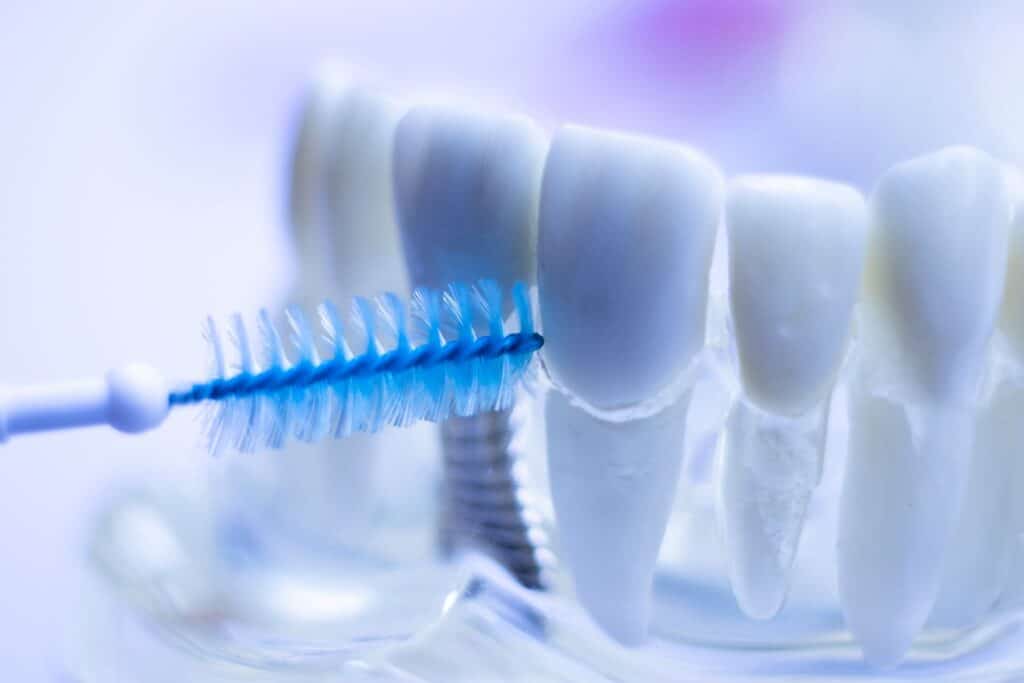
Ready to Learn More?
If you’d like more information about New Teeth Now and our approach to dental implants, contact us today. Our board-certified oral surgeons have helped many patient–even those with bone loss–enjoy the benefits of full mouth dental implants. Our friendly and knowledgeable staff will be happy to answer your questions and schedule a consultation for you.

